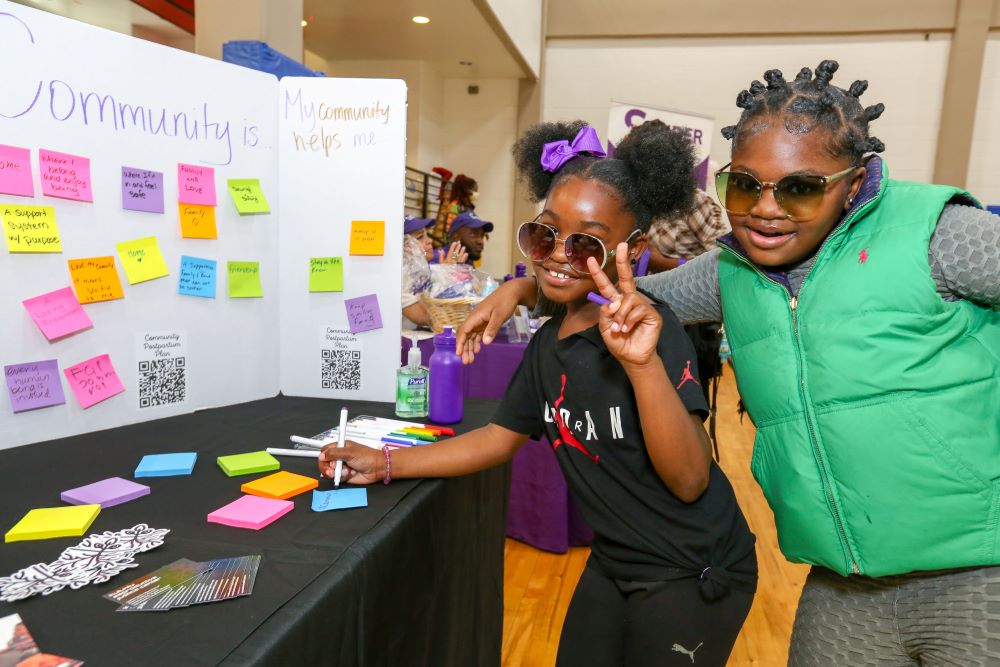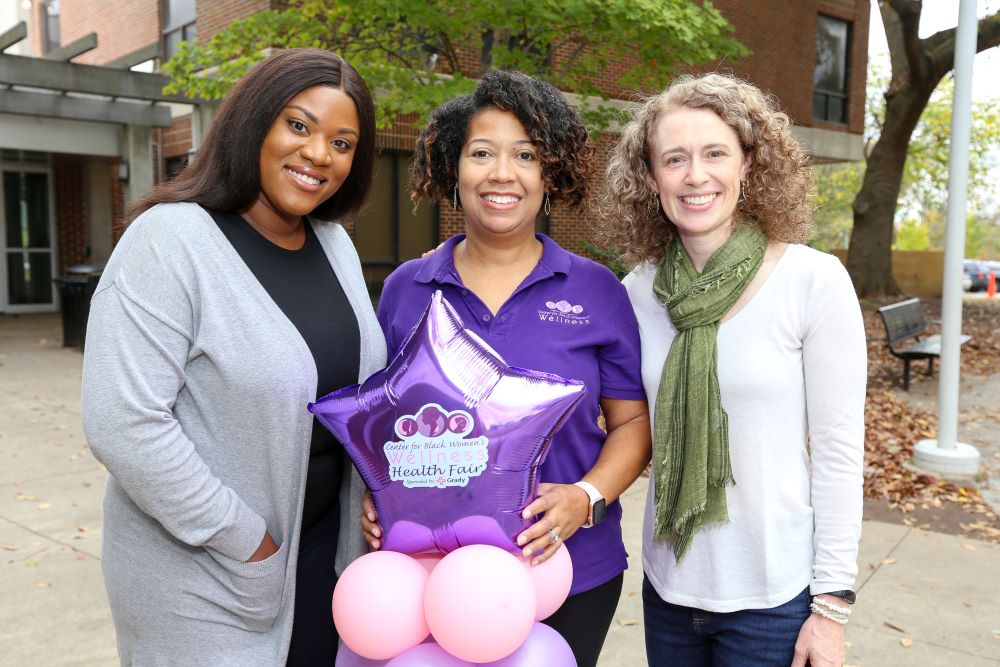Supporting Families in the Heart of Atlanta
For over thirty years, The Center for Black Women’s Wellness (CBWW) has been providing affordable health care and other essential services to support the physical, mental, emotional and financial health needs of Black women and their families in the Atlanta area.
The community’s appreciation of CBWW’s tireless support was evident at their November 2022 health fair as over 300 people gathered to access a variety of health and wellness resources—including free breast exams and mammogram appointments, eco-friendly health products, and nutrition information and groceries for expecting mothers.
With support from the CDC Foundation, CBWW also provided COVID-19 test kits and free onsite COVID-19 vaccinations and boosters as part of their Project Cares initiative to increase vaccine access in the community.
“The pandemic brought attention to health inequities that have existed for far too long and created significant economic instability—especially for those already vulnerable,” said Jemea Dorsey, CEO of the Center for Black Women’s Wellness. “As African American women and men faced job loss, fear, stress, isolation and despair, CBWW remained essential, offering support, resources and hope. Events like these are important to uplift those families impacted by the pandemic.”

Catherine Zilber, MSc, vice president for infectious disease programs at the CDC Foundation, and Nma Ohiaeri, MPH, CHES, public health analyst for the National Center for Immunization and Respiratory Diseases at the Centers for Disease Control and Prevention (CDC), attended the recent CBWW health fair to offer their support and to witness the power of community care in action.
“There was a great welcoming atmosphere at the event. It was inspiring to see how CBWW brings people together and helps provide so many different and valuable health services, including vaccinations,” Zilber said.

To learn more, read this CDC Foundation story about CBWW and their work.
Photo Credit: Caroline Joe for the CDC Foundation
This project is supported by the Centers for Disease Control and Prevention of the U.S. Department of Health and Human Services (HHS) as part of a financial assistance award totaling $22,724,994 with 100 percent funded by CDC/HHS. The contents are those of the author(s) and do not necessarily represent the official views of, nor an endorsement by, CDC/HHS or the U.S. Government.
